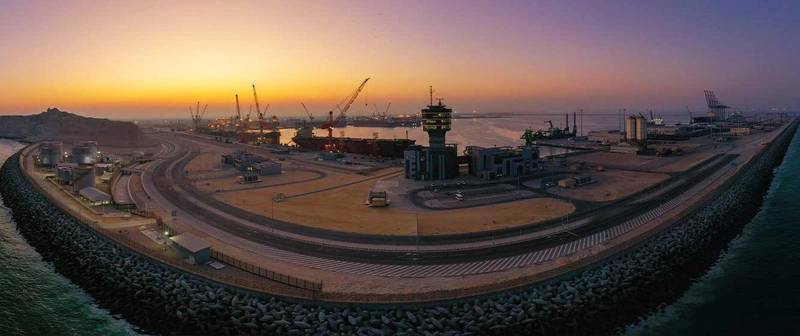Green Steel and Renewable Hydrogen: Investcorp's $550M Bet on Oman's Port of Duqm

Investcorp, a leading alternative investment firm, has announced a significant $550 million investment in the expansion of the Port of Duqm in Oman. This strategic move is part of a broader initiative to develop the port into a multipurpose hub that supports Oman's economic diversification and sustainability goals. The investment, made through Investcorp Aberdeen Infrastructure Partners (AIIP), aligns with Oman's Vision 2040, aiming to reduce the country's reliance on oil revenues and transition towards a low-carbon economy.
The Port of Duqm, strategically located on Oman's coastline with direct access to the Indian Ocean, is set to undergo extensive marine infrastructure works, including dredging and the construction of a new quay wall. These developments will facilitate the establishment of a new low-carbon industrial plant within the Special Economic Zone at Duqm, focusing on the production of low CO2 iron metallics products and, ultimately, hydrogen-powered 'green steel'. This initiative underscores Oman's commitment to sustainable infrastructure development and its ambition to produce at least 1 million metric tons of renewable hydrogen annually by 2030.
Investcorp's investment in the Port of Duqm expansion was secured through a competitive process, highlighting the firm's strategic focus on long-term concessions and partnerships in the GCC and MENA regions. The project is a collaboration between AIIP, the Port of Duqm Company, the DEME Group, and Port of Antwerp Bruges, forming a consortium named CAP INFRA. This partnership not only enhances the port's capacity as a crucial gateway for global trade but also positions it as a key player in the emerging green steel market.
The expansion of the Port of Duqm represents a pivotal step in Oman's economic diversification and sustainability efforts. By investing in infrastructure that supports green industries, Oman is paving the way for a future dominated by renewable energy and advanced logistics. Investcorp's involvement in this project reflects its confidence in Oman's strategic vision and its potential to become a leader in sustainable development within the region.




